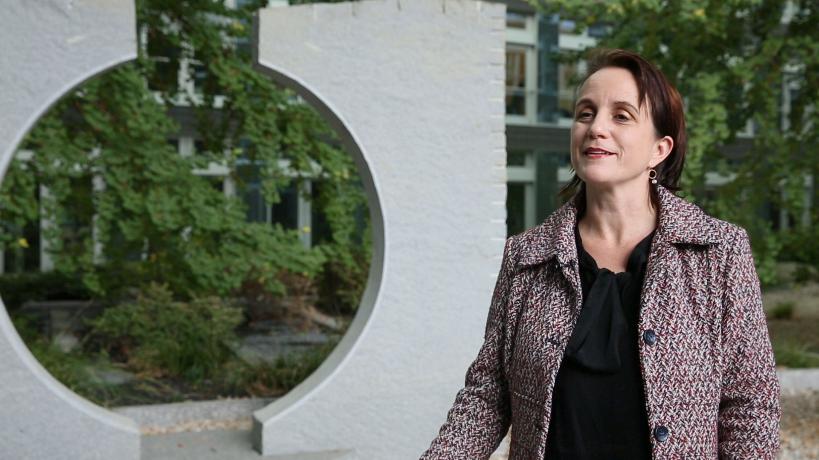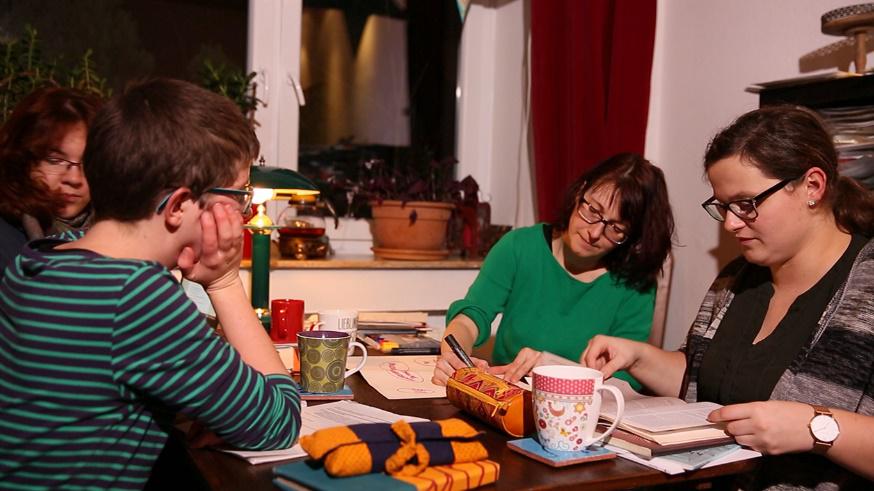
©vectorfusionart/AdobeStock
Good Teacher Education
Future teaching staff are educated to become reflective practitioners at the University of Bremen
The University of Bremen is the education center for teachers in Bremen State. Of the 20,000 students, around 15 percent are studying with a teaching orientation. How can future teaching staff be prepared for career challenges in the best possible manner? A project at the University of Bremen is trying to find this out. The Quality Offensive Teacher Education (Qualitätsoffensive Lehrerbildung) within the Federal Government-Länder Programme is in the second funding phase and is being supported with several million euros. The guiding principle is based on so-called reflective practitioners.
That means: Teaching staff should be in a position to think about their own actions during lessons and be able to draw on scientific findings and methods. Around 50 teaching and scientific staff members at the University of Bremen are dedicated participants within the Shaping Interfaces (Schnittstellen Gestalten) project. The Center for Teacher Education and Education Research (ZfLB) is leading the project and nearly nearly all of the faculties that educate teachers, the Center for Multimedia in Teaching (ZMML), and the Institute for Technology and Education (ITB) are involved. Moreover, the university is working closely together with Bremen schools and authorities, especially the Bremen State Institute for Schools (LIS).

©Dirk Vaihinger / Universität Bremen
The challenges that arise during the realization of the project are huge. “Many teacher education students find their degree to be fragmented, as it is spread over several subjects and varying faculties,” says Professor Sabine Doff, project head and director of ZfLB at the University of Bremen. That is why the Bremen project coordinates subject-based, didactical, and pedagogical parts of the teacher education program. Furthermore, theory and practice are being more closely intertwined. “They should ideally complement each other,” according to Doff.

©Dirk Vaihinger / Universität Bremen
Other core tasks of the project include the support of research and early career scientists in the teacher education field, the connection of the three phases – the degree, the practical teacher training phase, and further professional training – a professionalization of the handling of heterogeneity, and the organizational anchoring of teacher education at the university. In the second funding phase, the high profile area of digitalization will also be added. Thanks to the successful acquisition of another subproject in the field of vocational education, Shaping Interfaces now bundles eight of the nine faculties that educate teachers.
Inclusive Lesson on the Second World War Developed
An example of the closer intertwining of theory and practice are the so-called practical study projects, which are offered in addition to the standard practice placements within the teacher education program. “The students go into schools with special development tasks and can test and analyze their concepts together with the teaching staff,” says Professor Natascha Korff, who is leading the projects with three other colleagues. The Bremen schools, with which the subproject is building a network, suggest possible topics.
„It was a great gain for me that three students helped me to create my lessons in an even more inclusive way.”
One of these schools is the Oberschule am Leibnizplatz high school in Bremen’s Neustadt district. In order to make their society and politics lessons more inclusive, the teacher Dr. Katja Scheidt developed, carried out, and reflected on a lesson for the 10th grade on the Second World War and the Holocaust together with three students. The aim was to form the topic in such a manner so that the school pupils could process the contents at different learning stations depending on their level of learning – for example, in the form of worksheets and by creating posters, videos, and podcasts.
The students contributed innovative content-based and method-based ideas and also a non-school link, such as relevant exhibitions in Bremen, to the lesson topic. By doing this, they were able to create a practice-related lesson together with the teacher. Two of the students study Inclusive Education and one studies History. “That meant that we were able to work in an interdisciplinary manner,” according to Scheidt. “It was a great gain for me that three students helped me to create my lessons in an even more inclusive way.” Katja Scheidt will share the material that they developed with her colleagues. Additionally, two students wrote their master’s theses on the lesson.
“The University of Bremen is contributing a great deal so that we can research our future professional field and can learn to apply methods.”
“The Shaping Interfaces project is making an important contribution to the long-term development of teacher education at the University of Bremen,” says the vice president academic, Professor Thomas Hoffmeister. “Thanks to the participation and collaboration of many faculties, a vast culture of discussion on how we can further improve this area has been created.” Teacher education students have also provided positive feedback: “The University of Bremen is contributing a great deal so that we can research our future professional field and can learn to apply methods,” says Sabrina Schläger.
Quality Offensive Teacher Education
In 2013, the Federal Government and Federal States decided on the Quality Offensive Teacher Education as a joint program. Related projects have been funded since 2015: The Federal Government has made funding of up to 500 million euros available for this purpose. Professional advisory services and a closer integration of studies, the practical teacher training phase, and further education are the aims of the Quality Offensive Teacher Education so that a better practical relevance can be attained. Since 2016, the Quality Offensive Teacher Education at the University of Bremen has received a total of 5.4 million euros in funding and will come to an end after the second funding phase at the end of December 2023.
More information
Homepage Qualitätsoffensive Only in German available
Homepage Lehrerbildung Only in German available